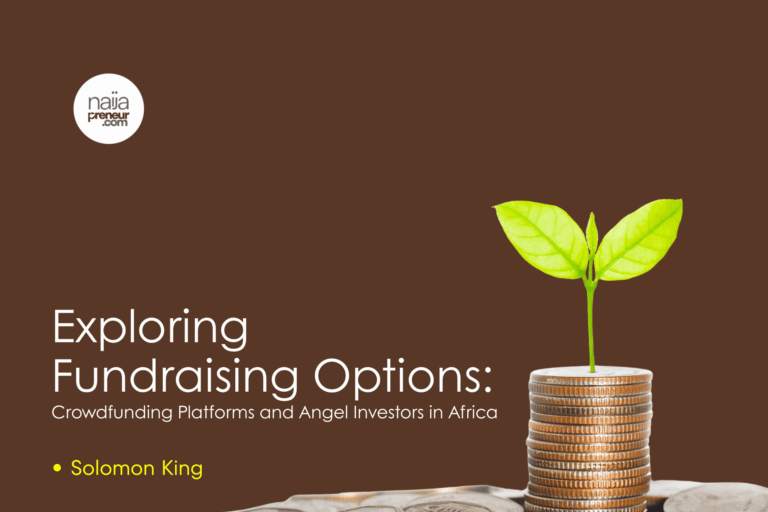For African entrepreneurs and startups, raising capital remains one of the biggest hurdles on the path to growth. Traditional financing channels such as bank loans are often out of reach due to high interest rates, stringent requirements, or limited availability. This is why alternative funding sources—crowdfunding platforms and angel investors—are gaining significant traction across the continent.
Both options provide unique pathways to capital, community support, and mentorship. Let’s break down some of the most relevant platforms and networks.
Crowdfunding Platforms
Crowdfunding allows startups and projects to raise funds by pooling small contributions from a large number of individuals, often through online platforms. It not only provides capital but also helps validate a business idea in real time by testing market interest.
1. Thundafund
Thundafund is one of Africa’s leading crowdfunding platforms, focusing on creative projects, social impact initiatives, and startups. It gives entrepreneurs a chance to share their vision with the public and secure financial backing from supporters who believe in their cause. Successful projects on Thundafund demonstrate how storytelling and transparency can drive funding momentum.
2. Uprise.Africa
Uprise.Africa is South Africa’s first equity crowdfunding platform. Unlike donation-based models, Uprise.Africa allows investors to take equity in the businesses they support. This model not only helps startups raise larger sums but also gives everyday people an opportunity to become shareholders in promising African ventures.
3. Kickstarter
Kickstarter is one of the most popular global crowdfunding platforms. While it is based outside Africa, many African entrepreneurs leverage it to raise funds, particularly for creative and product-based ventures. From tech gadgets to art and cultural projects, Kickstarter offers visibility to a global community of backers.
4. Indiegogo
Similar to Kickstarter, Indiegogo is a global crowdfunding platform with a flexible funding model. Startups can choose to keep the funds raised even if they don’t meet their full target, which makes it attractive for entrepreneurs who want greater certainty during their fundraising campaigns. African businesses, especially those in technology and consumer products, have successfully used Indiegogo to reach international audiences.
For more details on African fundraising resources, platforms, and tools, entrepreneurs can explore Caena.io, a hub dedicated to simplifying the fundraising journey in Africa.
Angel Investors
While crowdfunding taps into the power of the crowd, angel investors bring experienced individuals into the mix. Angel investors are typically high-net-worth individuals who invest their own money in startups, often in exchange for equity. Beyond money, they usually provide mentorship, guidance, and access to networks that are invaluable for early-stage companies.
1. Angel Investment Network (AIN)
The Angel Investment Network operates globally and connects entrepreneurs with potential investors. Its African branch helps startups across the continent pitch to angel investors who are interested in diverse sectors—from fintech to agriculture.
2. African Business Angel Network (ABAN)
The African Business Angel Network is one of the most prominent organizations promoting angel investing in Africa. ABAN connects angel investors across the continent and provides a platform for collaboration, knowledge-sharing, and co-investment. It plays a critical role in growing the culture of early-stage investment in Africa.
3. Regional Angel Networks
Alongside global and continental networks, regional angel groups are also rising in Africa. They bring together local investors who understand the unique dynamics of their markets. By combining local insights with financial support, they help startups scale sustainably.
The Bottom Line
For African entrepreneurs, the fundraising landscape is broadening. Crowdfunding platforms like Thundafund, Uprise.Africa, Kickstarter, and Indiegogo provide access to capital while validating ideas through community support. On the other hand, angel investors and networks like AIN and ABAN offer not just funding, but also mentorship, expertise, and strategic guidance.
The most successful entrepreneurs often use a mix of these options—crowdfunding to prove demand, followed by angel investment to accelerate growth. With the right approach, these platforms and networks are helping African startups bridge the funding gap and compete on a global scale.

